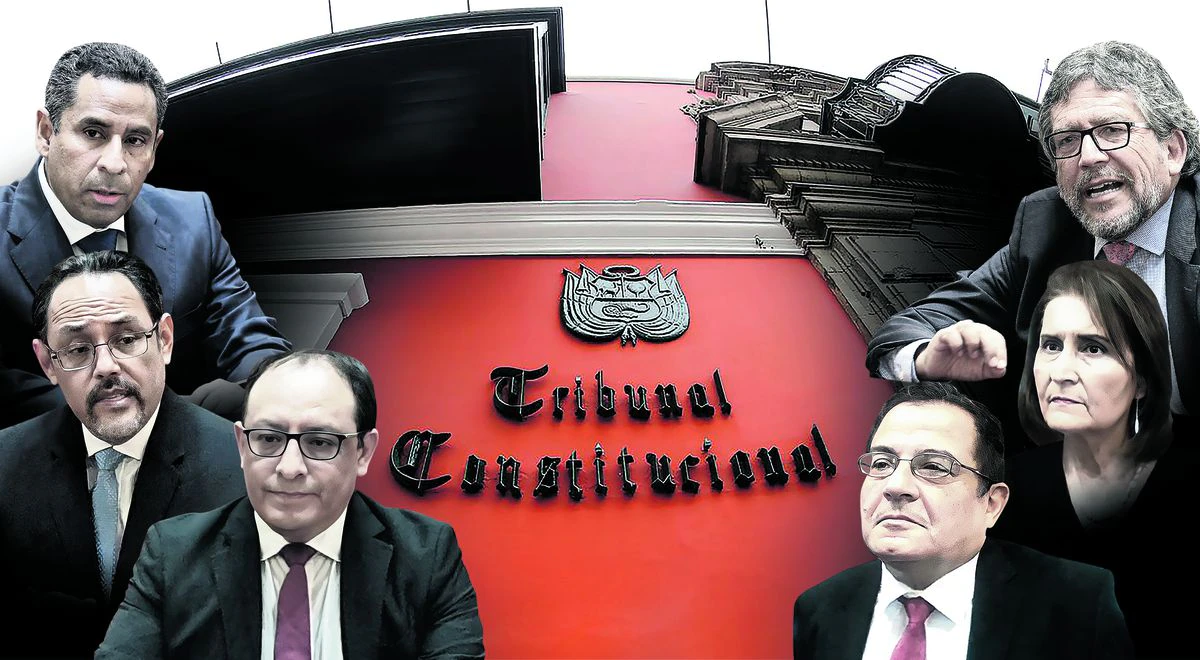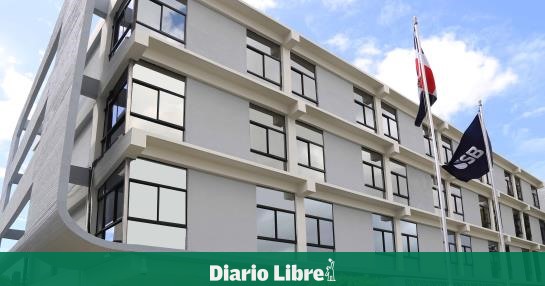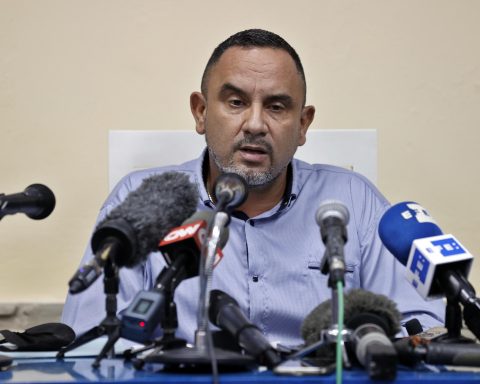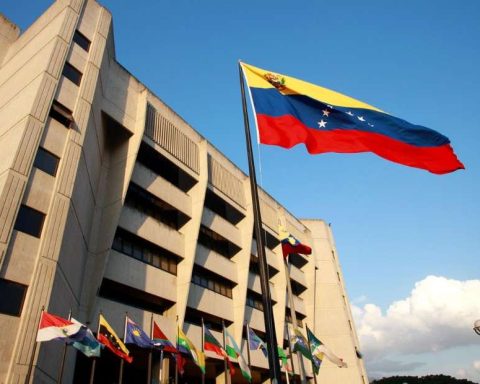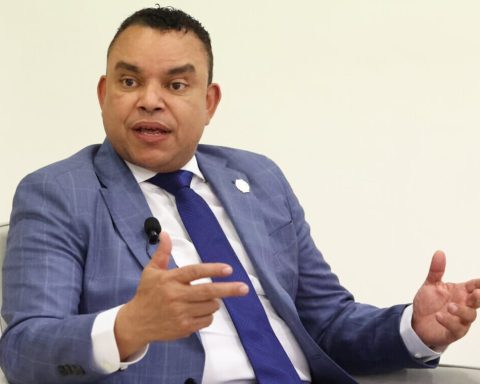The full of Congress developed a troubled process to elect the six new members of the constitutional Court. This election received criticism for its lack of transparency. The chairman of said commission, Jose Balcazarpresented the Comptroller’s report on the applicants with hidden pages.
Review a profile of the new tribunes: Francisco Morales Saravia, Luis Gustavo Gutiérrez Ticse, Helder Domínguez Haro, Luz Imelda Pacheco Zerga, Manuel Monteagudo Valdez and César Augusto Ochoa Cardich.
Francisco Humberto Morales Saravia
It ranked first in the evaluation presented by the special commission. He was chosen with 98 votes in favour, 21 against and 6 abstentions. He is a lawyer from the San Martín de Porres University and has a master’s degree in Constitutional Law.
He has worked as a university professor at USMP, ESAN, PUCP, UCSM and UNFV. His close relationship with Fujimorism is well known, since he was a person trusted by the former congressman of Fuerza Popular, Carlos Mesía Ramírez.
Francisco Morales Saravia was already a candidate for the TC on previous occasions. Photo: Congress
Luis Gustavo Gutierrez Ticse
He ranked second in the evaluation and, like Morales Saravia, maintains close relations with Fujimorism. He was about to be excluded from the election twice. In the first, for not including the traffic violations he had in his file.
The second was because the Comptroller reported that it had a coercive debt with Sunat. Congressmen José Balcázar, Luis Aragón, Hernando Guerra and Adriana Tudela were responsible for their continuity in the election. With 97 votes in favor, 23 against and 5 abstentions, he will replace Eloy Espinosa-Saldaña.
Gutiérrez Ticse is one of the candidates with the highest score. He got the rating of 88.67. Photo: Diffusion
Helder Dominguez Haro
will replace Marianella Ledesma. He was elected with 98 votes in favor, 19 against and 8 abstentions. He was direct judicial investigations of the Judiciary in 2016 and also worked as a teacher at different universities. Excluded from the selection for not mentioning that he was investigated, he claimed that he was never sanctioned for said investigation. Despite the fact that the technical team recommended ratifying his exclusion, the members of the special commission reinstated him.
Luz Imelda Pacheco Zerga
She is the only female member of the new TC. She is quite close to Opus Dei, she has a fairly conservative line. With 92 votes in favour, 26 against and 7 abstentionsthe plenary session of Congress decided to replace Manuel Miranda Canales.
YOU CAN SEE: Pedro Castillo rejects derogatory comments from Patricia Chirinos towards Betssy Chávez
Among its greatest controversies, it stands out having signed the ruling of the TC that prohibited the distribution of emergency oral contraceptives. In addition, he spoke out against the regulation of the crime of femicide during his interview with the parliamentary working group.
Luz Pacheco Zelga
Pacheco Zerga has been against women’s rights, along these lines, according to a Wayka report, in 2012 Pacheco Zerga published an article in a Mexican academic journal where he defended the sentence he issued in the 2009 the TC for the prohibition of free distribution of emergency oral contraceptives (AOE) in the State Health centers, request requested by the Religious NGO ALA Sin Componenda.
Manuel Monteagudo Valdez
The replacement of Carlos Ramos Núñez obtained 102 votes in favor, 14 against and 8 abstentions. He is a lawyer specializing in international economic and financial law. He is legal manager of the Central Reserve Bank (BCR), and also works as a professor at the Pontifical Catholic University of Peru (PUCP).
He suffered in the selection process after some of his research was omitted because it was written in English. He ranked fifth in the ratings in the evaluation.
claim. Manuel Monteagudo regretted that the commission had ignored his academic work. Photo: diffusion
Cesar Augusto Ochoa Cardich
He is a lawyer at the firm ‘Amprimo, Flury, Barboza & Rodríguez’ and a professor at PUCP. He obtained a score of 73.22 in the evaluation and with 90 votes in favor, 23 against and 10 abstentions, he was chosen as the replacement for José Luis Sardón. In addition, he was part of the Police Disciplinary Court in the Ministry of the Interior (Mininter).
Sigrid Bazán on the election of the new members of the TC: “It has been undemocratic”
The congresswoman for Together for Peru had harsh qualifications for the controversial election of the new members of the Constitutional Court. In a press conference held outside the Congress, the parliamentarian criticized the fact that the designation of the candidates was approved without prior debate. “Whoever is speaking to you believes that this process and this session has been undemocratic,” she declared.
The congresswoman continued to regret the way in which the election of the magistrates was carried out. “We feel that citizens deserve to have tall debates and today we didn’t even have one that wasn’t tall. There was no debate, which we believe is the fundamental pillar of Congress, ”she maintained.
Sigrid Bazán, who belongs to the JP caucus, announced on her Twitter account that she had prepared an interpellation request for Alfonso Chávarry. Photo: The Republic
What did María del Carmen Alva say after the election of the new TC?
The President of Congress, Maria del Carmen Alvasaid that what happened last Tuesday, May 10 “is a historic day for all of Peru” since the Plenary elected the 6 magistrates of the Constitutional Court in a session where there was no debate or preliminary issues.
María del Carmen Alva was elected as president of Congress in July 2021. Photo: LR composition
“It is an example that the 10 parliamentary benches work in consensus and dialogue. When we need to have an objective, which has been this election of the 6 magistrates, there are no shirts here. Here there is dialogue, consensus and joint work. We are very happy with what happened tonight”, said the head of the Board of Directors.
New magistrates of the Constitutional Court swore this Friday the 13th in reserve
The President of the Constitutional Court, Augustus Ferrero, took the oath of law to the new constitutional judges, Francisco Humberto Morales Saravia, Luis Gustavo Gutierrez Ticse, Helder Dominguez Haro, Luz Imelda Pacheco Zerga and César Ochoa Cardich this Friday, May 13. The act was carried out without prior notice, it was not broadcast and it was not announced on the official networks of the autonomous body.
A press release released after the ceremony stated that the tribune Augustus Ferrero congratulated the new constitutional judges and invited them to “strengthen democratic institutions, unity among all Peruvians, dialogue and search for agreements and consensus that allow the growth and development of our country.”
far from transparency. Secrecy was crowned in the process of selecting the new members of the TC. Photo: LR composition
Ledesma affirms that the swearing-in of the new magistrates of the Constitutional Court is null
The Republic had access to an email sent to the secretary general of the constitutional Court in which Marianella Ledesma considered that the swearing-in of new judgeswhich took place this Friday under absolute confidentiality, has no legal validity.
“Beyond the lack of consideration and respect for the outgoing magistrates due to the ‘secret’ swearing-in carried out today, I consider that said swearing-in is null because it has not been carried out before the plenary session of the Constitutional Court (although the article 19 of the Organic Law says that the oath is taken before the president, this is only valid to the extent that the president represents the plenary of the Constitutional Court, so that if the plenary has not been present at the taking of the oath, it does not have validity)”, was the response of Ledesma Narváez.
Challenges against new members of the TC
The process of electing new members of the constitutional Court was characterized by secrecywhich could be evidenced last Friday the 13th with the swearing-in of the new tribunes, which was carried out in absolute secrecy.
Similarly, the lack of discussion in this fact of national interest has generated doubts about the election of the members of the highest interpreter of the Constitution. To this is added the Comptroller’s report on the candidates for tribunes that was published with censored pages by the special commission of Congress.
TC: What are the pending lawsuits and processes that the new magistrates will see?
The new judges constitutional CourtMorales Saravia, Gutiérrez Ticse, Domínguez Haro, Pacheco Zerga, Monteagudo Valdez and Ochoa Cardich, will have to review problems that include the recognition of civil rights and the equality marriageas well as struggles between native and mining towns, in addition to the application of a higher quality educational reform.
In this note he reviews the cases that will be treated by six jurists who have agreed to the highest interpreter of the Constitution accidently, between claims, already hidden from the media.
Photo: Constitutional Court
Ledesma: “I am satisfied to have been the mole in all that conservative thinking of the TC”
After the election of the new constitutional Courtthe former magistrate Marianella Ledesma has ceased to be part of Full and stated that in his time there he has implemented ideas of change regarding the greater participation of women in society, despite the fact that his colleagues were mostly conservatives.
“It makes me satisfied to have been the mole in all that conservative thinking that has handled the CT. Even though I was a minority or a solitary voice, I have set down ideas that future generations will know how to appraise”, he commented to The Republic.
Espinosa-Saldaña: Constitutional Court must demonstrate its independence and impartiality
The former judge of the Constitutional Court Eloy Espinosa-Saldana ruled on the questions that have been raised against the way in which the Congress of the republic chose the new six new members of the Constitutional Court, in what would be a new deal in the country’s highest constitutional deliberative body. He considered that this new Court has the duty to demonstrate its impartiality and independence.
“The big problem with a magistrate is if he really internalizes once he is appointed (the support received in his election), if he has any kind of loyalty. They named me so-and-so, but I don’t owe them anything. (…) The first thing a Court must demonstrate is its independence and impartiality, You don’t have to care about anything, or who chose thembut where is the truth based on the application of the Constitution”, he declared to the program “There is no right”.
Turn the page. Espinosa-Saldaña points out that his relations with the president of the TC, Marianella Ledesma, are normal. (Photo: Jorge Cerdán)
